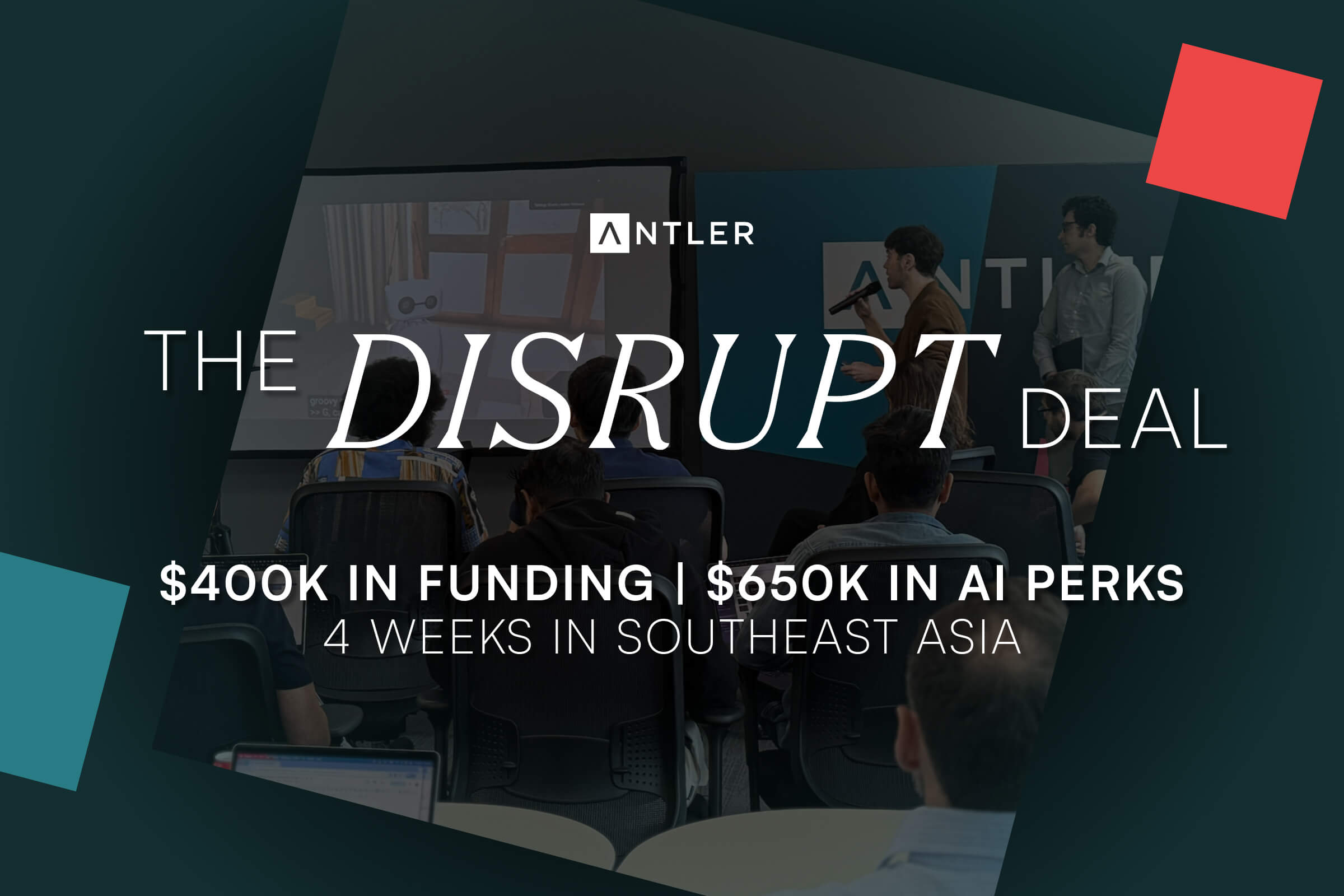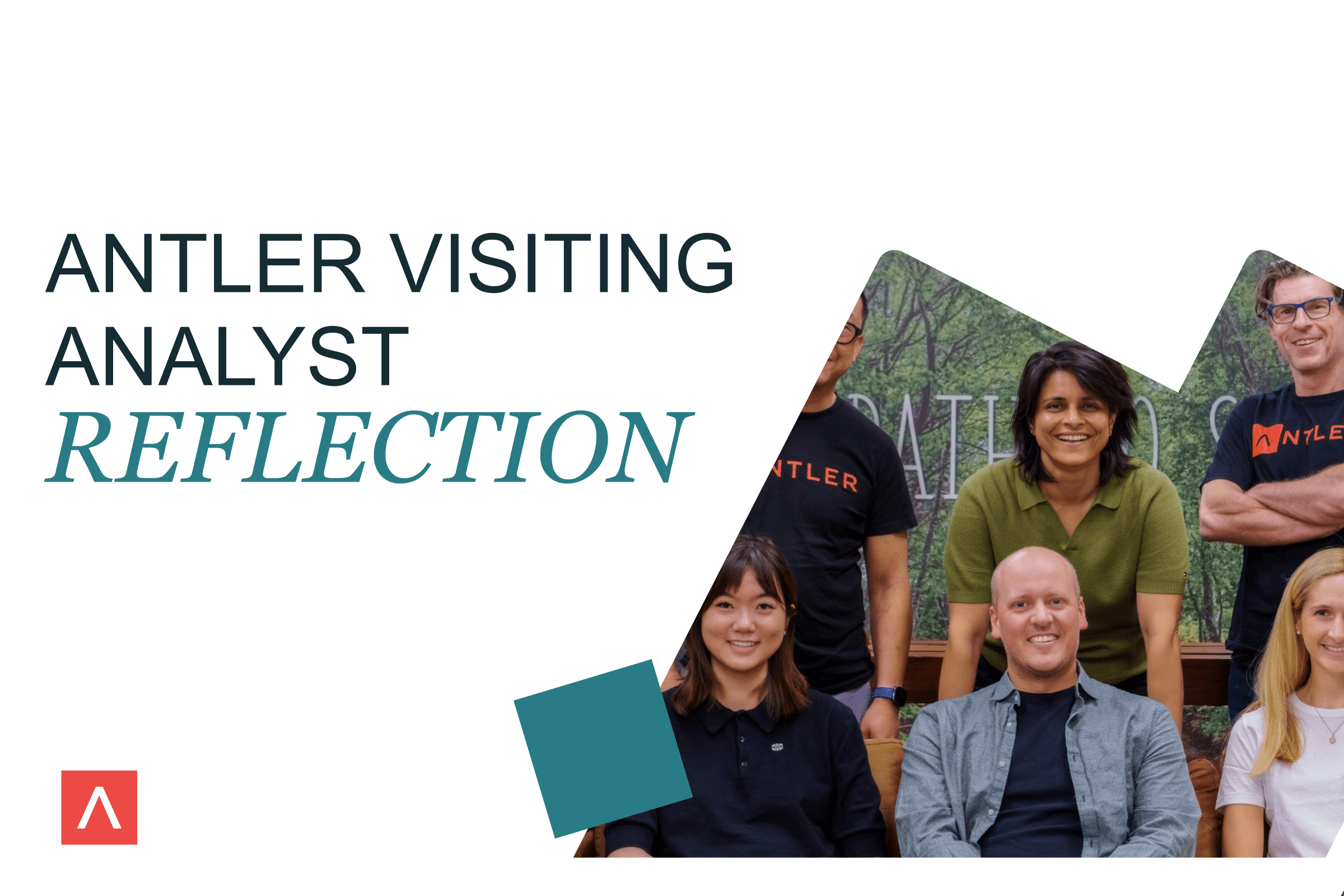Founding a startup can be an incredibly tough process for any entrepreneur, no matter the experience level. To provide some insight into the entrepreneurship process, Naman Budheo, General Partner at Antler Canada speaks with Evan McCann of The Hard Part on his podcast, and discusses his own path to becoming a founder, how to move past entrepreneurship failures, entering developed industries with heavy-hitting competitors, and how exactly he became an integral part of Antler Canada.
Meet Naman
Naman has founded and exited 3 travel technology businesses. He has built original small teams from inception and grown them to over 700 people. His companies were able to grow with great people building great products using technology. Developing people, products and technology to rapidly scale business and leading to successful financial exits for investors are the skills and experience Naman brings to Antler Canada.
An Early Interest
The interview opens straightaway with an exploration of why Naman chose to pursue entrepreneurship so early into his career. With one year of experience under his belt in a corporate setting, he mentions his own childhood experiences, which were full of knowledge of the travel business on account of his mother owning one. His understanding of the industry, as such, began very early–and at the precipice of the popularity explosion of the internet, he felt that the timing was right.
He doubles back on his mother’s business, which he describes as a travel “middleman”, much to the effect of a pre-internet Expedia, with the database being a generously packed binder containing multitudes of airline information. He recognized that there had to be, especially with the rise of the internet, a far easier way to communicate the same knowledge.
“At that point I was like, there has to be a more efficient way with the internet to do this than fax and phone calls.”
Travel In 2023 And Beyond
Naman doesn’t hesitate to name trip planning as the biggest issue in the travel tech space. He describes the space as “littered with tombstones” belonging to trip planning or group planning initiatives. He suggests that the biggest deficiency in the landscape may be the lack of streamlined options; the process of research, when disjointed and inconsistent, is tricky to collect meaningful results from. This gives a ripe opportunity to take AI to the next level, however, as it has the capacity to begin to solve the issue head-on. Naman also suggests examining the B2B space as a potential area of entry into the industry, as opposed to the oversaturated and hypercompetitive B2C.
“I think trip planning is the next big thing with new AI technology”
Valuing The Right Resources
Naman admits to having mismanaged time in the past, once, as the head of a company of his own founding, Flight Network in a moment of “founder syndrome”– when an entrepreneur feels the need to be involved in every small aspect of their business. He anecdotally reveals that he would be available and in office during weekends despite having multiple employees and seeing steady growth in his business. He recognizes that this time would’ve been better spent in other ways. He also briefly touches upon pricing his companies, and not knowing the right strategies and what to include himself.
The importance of a network as a leverageable resource is also discussed, with Naman gaining a lot of his market knowledge through numerous conversations with investors, educators, people running funds, founders, and industry professionals. The importance of technical knowledge is also an important part of creating a startup, though through mentors and the aforementioned networks, that professional help can be found. However, he makes a point to talk about the market itself, and when that should become a tangible and significant consideration when doing business planning. He answers with regards to the Antler philosophy; day zero investing. It is always the correct time to be thinking about market fit, since ultimately, that is not a skill or a piece of technical knowledge that can be mastered, but rather a state of being that can either be in favor of the business or not.
Approaching Antler
Naman encountered Antler at an interesting point in his life, when he had already sold two companies, and was wondering if he wanted to make the emotional and personal investment into a third. Upon hearing the premise of the company, however, he was extremely intrigued and connected well with the concept of truly early stage investments, despite some back and forth he had with himself. Above all, however, Naman was certain that Antler was a place where he could provide value and meet people just like him–great entrepreneurs.
“I don't want to manage other people's money, and if I want to go to Florida for a month, I can. So that's the kind of wheelhouse I was looking at.”
He continued on to talk about the way in which the investments actually come to be, which is against a criteria of 70% in the founder(s), and 30% in the business. For Naman, the people-first approach is a statement on what it is that makes any startup thrive, especially when certain types of traits and personalities have consistently been successful in entrepreneurship. He is firm in the stance that even without a concrete idea, an entrepreneur should be more knowledgeable about their area of passion than the Antler team that they may potentially interview with. Individuals need to be willing to assess risks and take them at opportune moments–he cites specifically the “80-20 rule”, where instead of aiming for complete perfection, making launches at the 80% test measure and modifying to achieve that remaining 20% through feedback.
Among the most valuable features that an “investable” entrepreneur can have, however, is an “arc”, or a trajectory. If they have been brought on board for a 10 week period with Antler, then those 10 weeks should be full of growth, progress, and meaningful development.
“It's amazing what people can accomplish in 10 weeks. So trajectory is also something that we look for in founders”
A Match Made In Entrepreneur Heaven
Naman emphasizes the importance of having the support of the right cofounder throughout the founding process of any startup at all, and how Antler can help ensure that the right people meet each other in every cohort. Naman does warn that there is a lot of luck in the matchmaking process, and recounts the start of his own partnership with Bernie, GP and Co-founder at Antler Canada.
“I might spend more time with this person than my wife in the first few years.”
Chemistry and connection are non-negotiable aspects, as is a mutually agreed upon definition of success, and alignment in goals and their consequent prioritization. In order to ensure that the correct people come together, Antler creates a Slack channel space for the sole purpose of socialization one month prior to the beginning of a cohort. He mentions three common sorts of prospective founders that commonly wind up at Antler.
The “business” individual provides value through knowledge and expertise in fields like sales, fundraising, etc. to help support the startup from a commercial perspective. The “CTO” offers technical experience and an ability to translate ideas into technology. Lastly, the “Subject Matter Expert” typically holds high levels of education and is highly specialized, often has a PhD, and is the backbone of the product, more times than not.
Meetings and interactions must occur between these different types of personalities, and so for the first 2 weeks of each Antler cohort, both structured and unstructured meetings are a big part of the program. With interactions ranging from “speed dating” all the way to “water cooler conversations” or even “dinner to talk”, there are ample opportunities to click with a diverse group of people and find someone with a complimentary skill set and similar passions. This methodology not only allows founders to discover what and who they align with, but also what and who they don’t align with–an equally important discovery in the founding process.
Creating Value By Seeing Value
The Antler process, to put it lightly, is thorough.
Interviews ensure a well-conceived selection process of high-potential founders, who upon starting the 10-week program, are expected to attend weekly meetings with either of the Antler GPs for check-ins. In addition, there’s a high level of leveraging individual networks of the company and staff, which opens doors for every kind of entrepreneur. Naman particularly highlights a personal experience of his, where a B2B-type company in the automated credit checks space that he was involved with was able to find their first client, who was a personal friend of his.
“It's very important for founders to think about who is on your cap table, who are your investors, and we think having Antler on your cap table is really beneficial.”
Furthermore, value doesn’t stop beyond the investment space. Naman talks briefly about how many-a-times, previous entrepreneurs to enter into the program with an intention to start their own company actually wind up in a co-founder role with someone else, in an entirely different industry or field from where they originally were aiming for. He mentions how the willingness to pivot as many entrepreneurs do speaks to the ability to “actually get along” with the process of creating and running a startup. The support for the process extends far beyond simply Antler Canada; there is always someone who knows exactly the kind of professional that a founder may need, regardless of where they are in the Antler Global community.
“What are you exceptional at? What do you consider to be exceptional, where you’re at the top?”
Representing Representation
Naman is very proud of the Antler selection process, which not only prioritizes supporting founders early in the game, but also supporting founders regardless of what or how they may identify as. This is evident in Antler cohorts, which are consistently diverse and composed of a wide variety of individuals and backgrounds. This is achieved through the active removal of bias from the application reviewing process; resultant is a cohort that includes groups that are otherwise underrepresented in the business world.
The makeup of Canadian demography certainly does help; about 35% of all founders are female, and women are always represented at the end table after the 10 weeks, when companies are potentially being offered an investment. As someone who immigrated to Canada himself, Naman also reveals that 50% of the founders in the first three Antler Canada cohorts were immigrants, and 50% BIPOC.
The age and experience range in each cycle is also highly varied, though historically the participants have been from the GTA–a figure that is being changed by the day. The best kinds of entrepreneurs, however, are the kinds who can do a minimum of two things; maintain expertise and knowledge in their respective fields, and either already possess or develop a keen sense of the business basics (including soft skills) and economics.
Moving On–And Ahead
Naman is very quick with his response on how to combat tough times; to always strive to be better. The key to success, according to him, is to always “look to betterment”, which can be done in a wide breadth of ways. One can look to books for knowledge, support from friends and family, or even their co-founders as resources to learn from. He ends the interview with a quick word to Antler, where you develop the kind of network that you can rely on for as long as you’d like–exactly the kind that will make you better.
“We're trying to make it a little bit easier to produce more founders and more companies in Canada.“
If you want to become a startup founder, find the perfect co-founder and create impactful companies to shape the future, apply now and begin your Antler journey.
Interested in watching Evan’s podcast? Find and enjoy episodes here. Check out more from Antler Canada–and Antler Global–on our YouTube.




.avif)







